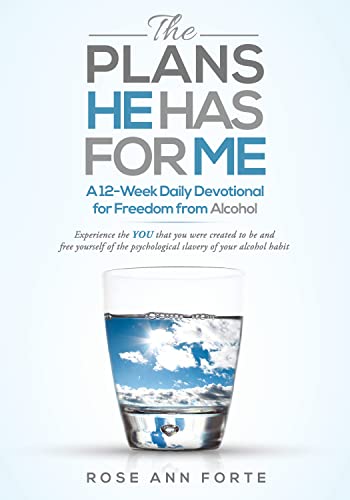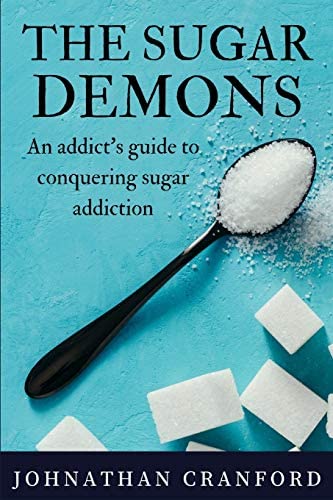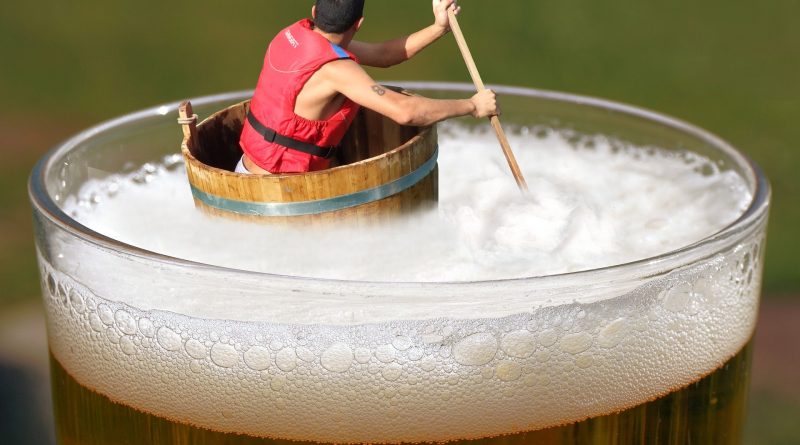New Year, New Who?
The Plans He Has for Me: A 12-Week Daily Devotional for Freedom from Alcohol
by Rose Ann Forte (c 2022 by Rose Ann Forte, Publishing support provided by Ignite Press)
Sugar Demons: An Addict’s Guide to Conquering Sugar Addiction
by Johnathan Cranford (c 2019 by Johnathan Cranford)
How are those New Year’s resolutions coming along? You know, the “New Year, New You” mindset, where we try to overcome the excesses and overindulgences of the December holidays — by restricting or abstaining from all things that bring us joy — as we endure the bleak frozen tundra known as January.
Fresh start, new page, and all that falderol.
Armed with determination and the knowledge gained from of our first 8,000 failed attempts, we decide that this is our magical year for giving up alcohol, dropping those extra pounds, joining a gym, eating healthier, getting our finances in order, and finally finding the cure for cancer.
But where to begin?
Some say that group support is a great place to start.
For those who believe the adage, “We are wounded in community, and we are healed in community,” reaching out to others might be a helpful path. Folks seek connection through various online support channels, such as Facebook groups, informational videos, or wacky tips from TikTok tutors. Others might even pay to join a group, like Overeaters Anonymous or Weight Watchers; or attend Alcoholics Anonymous meetings for in-person communal support.
But for the fiercely stubborn amongst us, oftentimes, we try to go it alone. Whether it’s to hide our self-condemning shame or just a tendency toward introversion, we keep our frustrations to ourselves, as we strive toward health nirvana. Grabbing onto our proverbial bootstraps, we endeavor to white knuckle our way through our addictions, as we throw caution to the wind and embark into the scary world of Self-Improvement.
This is where the genre of self-help “literature” comes in to play.
It seemed to this reviewer that self-help books were a relatively recent phenomenon that had their zenith in the 1980s, with titles like “You Can Heal Your Life” or “The Seven Habits of Highly Effective People”. However, if we venture slightly further back in time, to the 1950s, minister Norman Vincent Peale’s “The Power of Positive Thinking” was enormously popular, as it beckoned folks to put on a happy face to achieve their dreams.
Truth be told, self-help books go even farther back than this.

Written in 1859, there actually was a self-help best seller, appropriately titled “Self-Help” by Samuel Smiles. And, if we really want to climb into our way-back machine, the original pamphlet, chock full of self-improvement tips and helpful advice – an oldie but a goodie – we can peruse the book of Proverbs.
Wait – what has the Bible got to do with our New Year resolutions?
Well, regarding drink and overeating, Proverbs 3: 20-21 states:
Be not among winebibbers, or among gluttonous eaters of meat; for the drunkard and the glutton will come to poverty, and drowsiness will clothe a man with rags.
For making friends and influencing people, Proverbs 16:28 cautions:
Make no friendship with a man given to anger, nor go with a wrathful man, lest you learn his ways and entangle yourself in a snare.
While we may arm ourselves with the wisdom of the ages, and we may intellectually understand what needs to be done in order to break the bonds of addiction, it can still feel almost impossible to forge a new – and more healthful – path.
And so, in honor of ‘a new year, a new me,’ this reviewer delved into two self-published self-help books dealing with the topic of freeing ourselves from addiction, one regarding alcohol and the other, sugar.
The first step in conquering addiction is to admit you are an addict.
The first step to connecting with a book is for the author to arouse your curiosity and make you want to read further.
In The Plans He Has for Me: A 12-Week Daily Devotional for Freedom from Alcohol, Rose Ann Forte – a recovering alcoholic – offers biblical quotes, thoughts for the day, and some journal pages for those in recovery to ponder and reflect on the road to sobriety.
Sounds promising, right? I mean, after all, she is quoting the Bible!
First, the author is not terribly forthcoming about her own dealings with alcohol. She hardly shares any of her own personal history, save to say she is about two years sober, and that she credits reading and meditating on the Bible as what finally helped her to achieve sobriety. But she consistently refers to excessive drinking as a “bad habit” rather than an addiction. Her reticence to share her own story, combined with her refusal to acknowledge the difficulty of the struggle to end this “bad habit”, make her come across as judgmental and oddly detached; an AA Karen, if you will.
In addition, the book is a chopped salad of biblical snippets – a mere sentence or two from the Bible taken completely out of context – combined with a soupcon of sophomoric suggestions. For a manual that emphasizes introspection and contemplation, real insight is oddly lacking. The result is a haphazard book that feels cobbled together; an off-putting combo of condescension and insincerity that might drive a person to drink, rather than encouraging abstention. Perhaps that sounds harsh, but it is obnoxious to metaphorically pat a reader on the head, as you downplay the difficulty of the problems with which they are grappling.
I know this approach is quite popular today in some faith walks, but I can’t state too emphatically how annoying and cloying I found this book to be.

A far more sincere and helpful book is Jonathan Cranford’s Sugar Demons: An Addict’s Guide to Conquering Sugar Addiction. Straight off, Jonathan grabs your attention by sharing his struggle, but in reality, he is describing moments any addict has experienced. He follows this up with lots of helpful and fun suggestions for combating sugar addiction.
My favorite part was where he introduces SuperBetter, a game designed by Jane McGonigal, to help build personal resilience. (The overall goal of SuperBetter is improving physical and emotional health through gaming. It certainly is a novel idea. You can check out Ms. McGonigal’s SuperBetter Ted Talk here: https://youtu.be/lfBpsV1Hwqs)
This reviewer’s personal recommendation for overcoming addiction is to try a combination of approaches, rather than thinking only one avenue may help. If you are aiming at a target, it can be helpful to have many arrows in your quiver. Perhaps that is why I preferred Mr. Cranford’s book, which contains many suggestions for things to try; whereas Ms. Forte’s book is heavy-handed and relentlessly repetitive.
As for how this reviewer’s New Year’s resolutions are going? Likely similar to yours. Good days and bad, but overall, trying to improve myself and my health – one day at a time.
Copyright 2023 Baltimore Post-Examiner. All Rights Reserved

Lisa Salkov is a quizzical Renaissance woman — paralegal, actress, award-winning playwright, journalist, editor, loyal friend, and cat fancier. Above all, she is a soprano who thrives in sacred spaces. Lisa follows her curiosity wherever it leads — health and wellness, philosophy, religion, humor, and the human condition. As she gracefully enters yet another season of life, Lisa is grateful to care far less about the things that never really mattered.


Thank you for your feedback on my book, albeit we have differing views about its effectiveness. 😊 I would just like to state for the record that those prayers and Mindful Minutes “are my personal story” of suffering and redemption and the reviews on Amazon (and the Independent 5 Star Reviews shown there as well) do show that many resonate very much with those daily entries. I agree with your conclusion. Overcoming this problem most likely involves a variety of methods and attempts. Thanks again for taking the time.